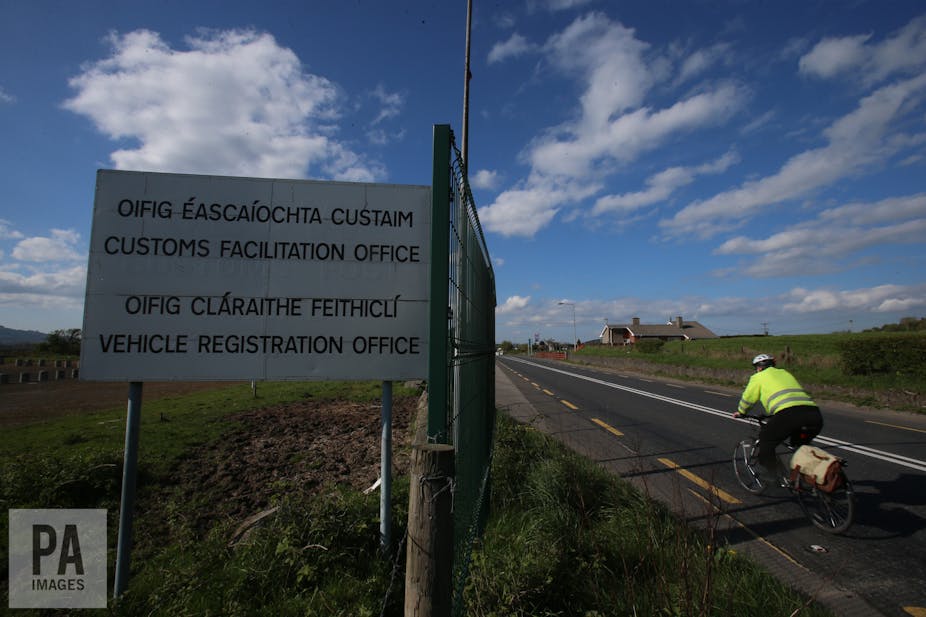The key objective of Brexiteers – those at the forefront of the political campaign to extract the UK from the European Union – is to control, and preferably prevent, the movement of “outsiders” to Britain, including those from mainland Europe. State borders are where that control can be asserted, so the key question is: where to establish this Brexit bordering regime?
The United Kingdom of Great Britain and Northern Ireland (UK) is the state in question, so it is logical to assume that we’re talking about its borders. But this assumption is problematic because of the border that meanders for 500km across the island of Ireland.
The Irish border is the only land border that the UK shares with another European member state – the Republic of Ireland. That border has been the subject of violent conflict, most recently The Troubles, which claimed more than 3,600 lives between 1969 and 1996.
Even when the Troubles were at their height in the 1970s and 1980s, the border security regime was only partial. The British government recognised that a hard border would play into the hands of Irish republican insurgents because it would fuel feelings of alienation.
Given this history, the possibility of a hard Irish border after Brexit seems like reckless folly. The softening of the Irish border from the early 1990s – through the removal of customs posts, security checkpoints and militarised fortifications – has been an important element in post-conflict peacebuilding.

Bringing a border back after Brexit could mean reintroducing customs, security and immigration checks on key cross-border arterial routes. It might even lead to the closure of more than 100 secondary cross-border roads and the deployment of border patrols.
After the Brexit referendum, it looked as though the new UK government, recognised the risks involved in all this. The prime minister, Theresa May, stated that “nobody wants a return to the borders of the past”. However, since Brexit has been inspired by the desire to curb freedom of movement from the European continent, it does not seem plausible that the UK government could entertain the continuation of an open Irish border. Hard borders of the future may rely increasingly on invisible technology to operationalise control. That said, the human border guard is not easily supplanted in a hard-border regime.
Which way to the border?
An alternative to bordering the UK state would be to border the island of Britain. This would avoid causing problems to the peace process on the island of Ireland and would be both easier to establish and less costly to manage.
Initiatives for securing the border of Britain – rather than that of the UK – have historical precedent. After France fell to Germany in 1940, security concerns dictated that travellers from the island of Ireland were required to carry passports or limited travel documents to gain entry to Britain. A full return to freedom of movement in a common travel area did not happen until 1952.
A bordered Britain became visible again in 1974 after the IRA bombing of pubs in Birmingham. The government was given the power to prevent people moving from Northern Ireland to Britain – and also to deport people from Britain to Northern Ireland.
Passengers arriving at the “Belfast gate” in British airports became familiar with the intrusion of border control paraphernalia decades before the experience became commonplace after 9/11.
Such precedents for bordering Britain challenge the idea of a UK border that is coterminous with the UK state. In a UK context, Northern Ireland’s geographical, political, economic and cultural distinctiveness – combined with its connections to the Republic of Ireland – underpin this challenge. The reality is that Britain is the de facto state and its borders are fuzzy.
The logic of Brexit is that Britain’s borders may well retreat to Britain in the quest to render them, clear, secure and impenetrable to “outsiders”.

